Top 10 Summer Hair Care Tips to Keep Your Hair Healthy and Beautiful
- In addition to sunshine, beach days, and outdoor activities, summer also brings extreme heat, humidity, and perspiration, all of which can harm your hair.
- Summer Hair Care Tips , The season may be harsh on your hair, causing everything from frizz and dryness to UV damage and hair loss.
- However, if you take proper care of it, your hair may remain vibrant, robust, and lustrous throughout the summer.
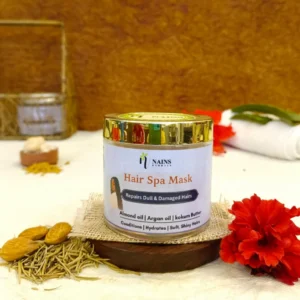
- In addition to sharing the top ten summer hair care techniques to help you keep your hair looking beautiful and healthy, we’ll also introduce two natural products that could revolutionize your summer routine:
- Hair Spa Mask and Hibiscus Onion Hair Growth Gel.
1. Shield Your Hair from UV Damage
- Similar to your skin, your hair is susceptible to the damaging UV rays of the sun, particularly in the summer. Color fading, weaker strands, and dryness might result from exposure to these wavelengths.
- Protecting your hair is crucial to preserving its strength and vitality, regardless of whether it is colored or natural.
- Apply UV Protection Sprays: A lot of people are unaware that UV radiation can weaken the proteins in hair, making it brittle and more likely to break. Sprays with UV protection are made specifically to form a shield from the sun. Before leaving the house, sprinkle your hair with a light UV protectant spray to help keep it hydrated and vibrant.

- Expert Advice: Select a non-greasy UV protectant with natural oils like coconut or argan oil with SPF components. If you spend a lot of time in the sun, it’s better to apply it to damp hair and reapply it throughout the day.
- Try This: Seek out leave-in mists that have UV filters included. They protect you every day without making your hair heavy. These are perfect for both city commuting and beach days.
- Knowledge and Proficiency Knowledge: Both dermatologists and trichologists stress how important it is to protect hair from the sun, especially in the summer when UV levels are high. UV damage is probably the cause if you’ve been outside for a day and observed that your hair feels like straw.
- Supporting Evidence: Research indicates that extended exposure to sunlight damages hair proteins like keratin, weakening the structure as a whole. The first line of defense is provided by products with UV filters.
- Reputable Brands: Select items from respectable haircare companies that prominently display SPF or UV protection. Steer clear of formulations with a lot of alcohol since they will further dry out your hair.
2.Hydrate with Deep Conditioners
- The heat of summer may be very dehydrating. Your hair loses its natural oils due to the sun’s rays, humidity, and pollution.
- This results in dryness, dullness, and split ends. Intense hydration from deep conditioning treatments helps your hair recover from environmental assaults.
- Avoid Split Ends and Dryness: The secret to avoiding brittle, sun-scorched hair is moisture. A weekly deep conditioner restores natural shine and nourishes hair from the inside out.
- Product Pick: Nutritious botanicals like avocado oil, shea butter, and aloe vera are added to our hair spa mask. It repairs damage from the sun and style by penetrating deeply into the hair shaft.
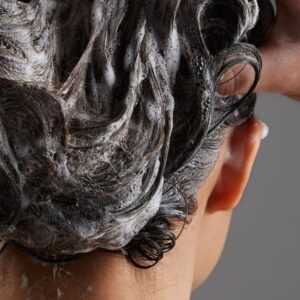
- Pro Tip: To improve product penetration, use heat (such as by covering your hair in a warm towel). Before washing, leave the mask on for at least twenty minutes.
- Knowledge and Proficiency Insight: For all hair types, hairstylists advise using deep conditioners, particularly in hot weather. Hydration increases suppleness and decreases breakage in all types of hair, including coily, curly, and straight hair.
- Authoritative Support: Regular conditioning increases hair’s resistance to environmental damage, according to a study published in the Journal of Cosmetic Science.
- Trust Tip: Steer clear of silicone-heavy products that provide a glossy finish without any long-term moisture. Seek out deep conditioners with the labels “natural extracts,” “paraben-free,” and “sulfate-free.”
3. Promote Healthy Growth with Natural Ingredients
- Sweat and pollutants can accumulate on your scalp during extreme heat, blocking follicles and impeding growth. Because of this, summer is the ideal season to use natural hair growth-promoting substances to cleanse and nourish your scalp.
- Make Use of Scalp-Nourishing Items: In order to promote hair development, ancient remedies have included hibiscus, amla, neem, and onion juice. These organic stimulants fortify roots and increase blood flow to the scalp.
- Highlight of the Product: Our Hibiscus Onion Hair Growth Gel is intended to increase overall volume, fight itching, and lessen hair loss. It is appropriate for everyday usage, lightweight, and non-greasy.
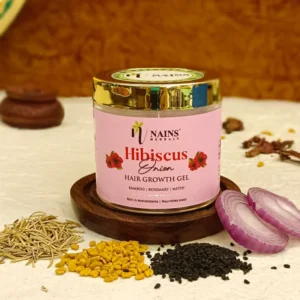
- Expert Tip: To improve blood flow and absorption, massage the gel into your scalp for at least five minutes. Rinse the following morning after using it at night.
- Knowledge and Proficiency Insight: To fight hair thinning, doctors and Ayurvedic practitioners also suggest hibiscus and onions. Their antibacterial and anti-inflammatory qualities guarantee a wholesome, clean scalp.
- Support from Authorities: According to clinical research, onion extract promotes hair follicle regeneration and improves hair regrowth in a matter of weeks.
- Trust Tip: Remain loyal to companies who list their ingredients honestly and ethically. Natural does not equate to efficacy unless it is supported by appropriate formulation.
4. Don’t Skip the Leave-In Conditioner
- In the summer, a leave-in conditioner is your best friend. Without requiring rinsing, it provides long-lasting defense against frizz, knots, dryness, and UV damage.
- Detangle and Protect: An additional layer of moisture from leave-in conditioners helps keep frizz and knots at bay. They also keep you hydrated all day long and make style simpler.
- Pro Tip: Focus on the mid-lengths to ends of towel-dried hair while applying. To distribute evenly, use a wide-tooth comb to comb through.
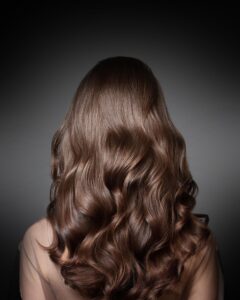
- Experience Insight: Because leave-ins also serve as heat protectants, hairstylists frequently use them prior to styling or blow-drying. They also provide as sun protection in the summer.
- Authoritative Reference: The American Academy of Dermatology states that leave-ins and other conditioning treatments serve to fortify the hair shaft and keep it from breaking.
- Trust Factor: Select alcohol-free, lightweight solutions that won’t cause accumulation. For extra benefits, look for components like argan oil, keratin, and panthenol.
5.Cover Up to Avoid Direct Sun Exposure
- Physically covering your hair is one of the easiest yet most efficient ways to prevent sun damage. Covering your scalp is as important as wearing shades for your eyes.
- Put on a scarf or a hat to physically shield your hair from the sun. The finest coverage is provided by wide-brimmed hats, which also protect your face from damaging sunlight.
- Style Tip: To prevent overheating, choose breathable materials like cotton or linen. Printed scarves can be tied stylishly to match your ensemble and shield your hair.

- Experience Tip: Many beachgoers and outdoor workers report noticeably healthier hair by consistently covering up during peak sun hours.
- Authoritative Advice: Dermatologists recommend covering up, especially between 10 AM and 4 PM when UV radiation is strongest.
- Trust Note: Avoid synthetic materials that trap heat and sweat. Always wash your headwear regularly to avoid buildup of dirt and oils.
6. Rinse After Swimming
- Swimming is a terrific way to remain cool, but the salt in the ocean and the chlorine in pools may seriously damage your hair. They deplete natural oils, which results in brittleness, dryness, and color loss. Post-swim hair treatment is therefore crucial.
- Prevent Damage from Chlorine: When the hair cuticle is opened by chlorinated water, chemicals can enter and harm the hair. The drying effect is same for saltwater. To get rid of these remnants, always rinse your hair with fresh water right after swimming.
- Quick Tip: Before swimming, wet your hair with clean water. Wet strands lessen the impact of salt and chlorine because they absorb less of them. To create a barrier, you can also use protective oil or leave-in conditioner.

- Gain Knowledge: Regular swimmers and lifeguards frequently observe that washing their hair both before and after swimming significantly enhances hair texture and lessens breakage.
- Supporting Evidence: To lessen chemical absorption, the CDC advises taking a shower before getting into a swimming pool. Hair professionals support this by stressing how crucial rinsing is to maintaining the health of hair.
- Trust Suggestion: To clean without removing oils, use a mild shampoo without sulfates after swimming. Apply a moisturizing mask or conditioner afterward.
7. Limit Heat Styling
- The last thing your hair needs is more heat from styling equipment when the sun is already drying it out. Excessive curling, straightening, or blow-drying might exacerbate summertime hair issues.
- Avoid Using Too Much Heat: Whenever possible, let your hair air dry. Try heatless hairstyles like twists, buns, and braids and embrace natural textures.
- Pro Tip: Always use a heat protectant spray if you have to style with heat. Reduce the effective temperature of your tools.
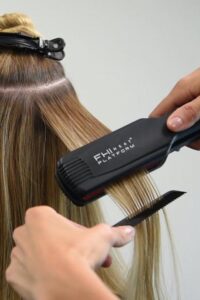
- Experience Advice: During the summer, clients who use hot tools regularly tend to have more split ends and breakage, according to hairstylists. The condition of your hair can be greatly improved by removing it from the heat.
- Trichologists recommend reducing heat exposure, particularly when it is paired with sun exposure, according to authoritative insights. Multiple stressors cause hair fibers to deteriorate more quickly.
- Trust Tip: Invest in styling products made of ceramic or tourmaline that evenly distribute heat and minimize damage. Additionally, rather than rubbing your hair dry, gently blot it using microfiber towels.
8. Fight Frizz in Humid Weather
- One of the main causes of frizz is humidity, particularly if your hair is naturally curly or wavy. The air’s extra moisture causes the hair cuticle to rise, giving the appearance of frizz and lack of definition.
- Make Use of Anti-Frizz Items: Look for cuticle-smoothing and moisture-retaining serums, creams, or sprays. Effective frizz-fighting ingredients include silicone compounds, jojoba oil, and argan oil.
- Style Tip: Steer clear of glycerin-based cosmetics when the humidity is high. Frizz can worsen due to glycerin’s ability to attract additional moisture from the air.

- Expert Tip: To lessen puffiness, use anti-frizz products to damp hair, seal it with a cold blow-dry, or let it air dry in a braid or bun.
- Gain insight: Beauty experts suggest heavier creams for thick or coarse hair and lightweight, silicone-free serums for fine hair.
- Authoritative Reference: Anti-humidity polymers form a barrier around hair strands to keep moisture out and avoid frizz, according to cosmetic chemists.
- Trust Suggestion: Steer clear of alcohol-heavy hair-drying sprays and choose for products marked “humidity-resistant.”
9. Eat for Hair Health
- Your hair is directly impacted by what you consume. Dehydration and nutrient loss brought on by the summer can affect the strength and development of hair.
- Nourish from Within: Consume foods high in vitamins A, C, and E, biotin (found in eggs and almonds), iron (found in lentils and spinach), and omega-3s (found in walnuts and flaxseeds). These nutrients support healthy growth and strengthen hair follicles.
- Pro Tip: Drink plenty of water! When it comes to getting nutrients to your scalp and hair roots, water is essential.

- Gain Knowledge: A lot of dietitians point out that dietary inadequacies are frequently the cause of hair problems. A healthy diet is an investment in your hair that will last for years.
- Authoritative Support: Studies published in dermatology journals provide compelling evidence of a close connection between hair health and diet. Brittleness and hair loss can result from deficiencies.
- Reliable Practice: Unless a healthcare professional advises otherwise, choose natural, whole foods over supplements.
10. Trim Regularly to Avoid Split Ends
- Maintaining hair shape, getting rid of split ends, and encouraging healthy growth all depend on getting regular haircuts. Damage from the summer might hasten the deterioration of your hair.
- Maintain Hair Shape: Split ends can cause more serious damage if they continue to migrate up the hair shaft, which can be avoided by trimming your hair every 6 to 8 weeks.
- Expert Advice: Be clear in your communication with your stylist. If you need to clean up damaged ends but don’t want to lose length, ask for a “dusting.”
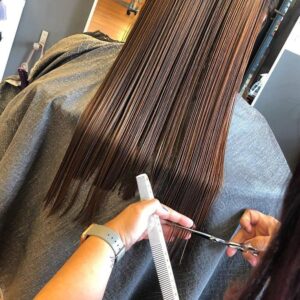
- Gain insight: Customers who maintain a regular trim report having healthier-looking, stronger hair that is less prone to breakage and knots.
- Expert Advice: Hair experts stress that although haircuts don’t directly impact growth pace, they do stop breakage, which can impede growth that is noticeable.
- Trust Suggestion: For home trimmings, always use professional, sharp scissors. Split ends can be made worse by dull blades.
FAQS
1. How often should I wash my hair during summer?
It’s best to wash your hair 2–3 times a week to avoid stripping natural oils. If you sweat excessively, consider co-washing (using only conditioner) in between.
2. Can I use coconut oil before going out in the sun?
Yes, but use it sparingly. Coconut oil can help retain moisture but doesn’t offer UV protection. Combine it with a UV-protectant spray for added defense.
3. Are there any natural remedies for sun-damaged hair?
Yes. Aloe vera gel, hibiscus masks, and yogurt with honey are popular natural remedies to soothe and repair sun-damaged hair.
4. Should I avoid coloring my hair in the summer?
Not necessarily. But post-color care is crucial. Use sulfate-free, color-safe shampoos and UV-protectant products to maintain vibrancy.
5. Do hats and scarves really protect my hair?
Absolutely. Physical barriers like wide-brimmed hats or breathable scarves are among the most effective ways to shield hair from UV rays.
6. How do I prevent my scalp from sweating and getting oily?
Use dry shampoos or herbal scalp mists. Wash your scalp gently and avoid heavy products that clog pores.
7. Can I swim daily without damaging my hair?
Yes, with proper care. Wet hair with clean water before entering the pool, wear a swim cap, and rinse immediately afterward with gentle shampoo.
8. What ingredients should I avoid in summer haircare products?
Avoid sulfates, parabens, heavy silicones, and alcohols that dry out the hair. Choose hydrating and lightweight formulas instead.
9. How can I protect my hair at night during summer?
Use a silk pillowcase or wrap your hair in a silk scarf. This reduces friction, frizz, and moisture loss while you sleep.
10. Is air-drying always better in summer?
Yes, when possible. Air-drying reduces heat exposure. However, make sure hair is partially dry before sleeping to avoid mildew or breakage.
